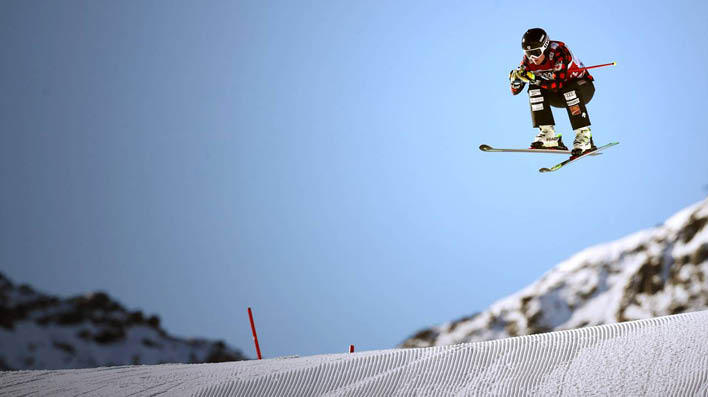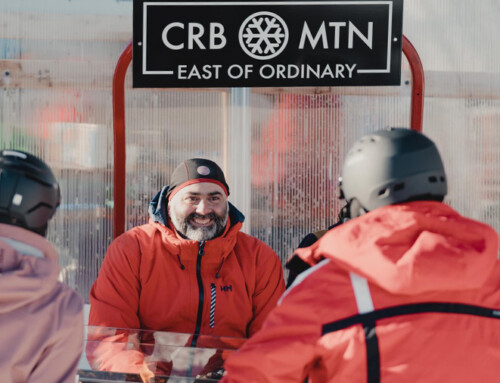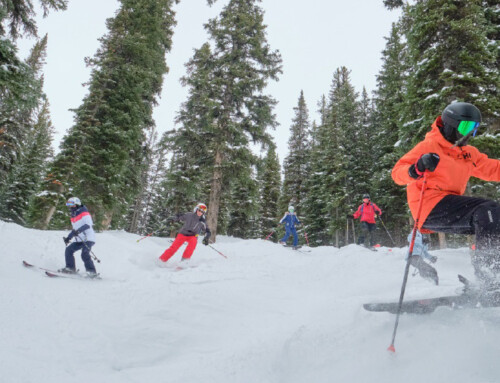Ski Cross athlete Kelsey Serwa won her first race in 2010 and has been vaulting forward ever since. A member of the Canada Ski Cross team, she is now training for the 2018 Olympics. We caught up with the Kelowna, B.C.–born World Champion, National Champion, X-Games gold medalist, and Olympic silver medalist between practice runs in Kitzbühel, Austria.
You had knee surgery last year; how are you feeling now?
My strength is even between left and right, and I couldn’t be happier, considering where I was at last December. I didn’t crash, I just had a hard impact, which took a piece of cartilage off my femur. They cleaned it up a bit and I returned to racing last season but I wanted to do a more permanent fix on it, so that required a longer rehab process. But I’m really happy with that decision and now I have no pain.
What’s your process for recovering from injury?
I’ve always been optimistic and I’ve always put in the hours that it takes to fully recover from an injury. It’s a part of sport that every athlete deals with in some capacity. So it’s normal to go through it, and it tests an athlete’s passion and dedication, because everything is a lot more work than when you’re healthy and always getting stronger. Obviously it’s a real mental hardship to be brought down to ground zero and then to have to build back up just to get back to normal. But I feel like I’ve attacked these challenges well and it’s defined me in a way that I’m proud of.
You came back from a serious ACL injury to win Silver at Sochi…
I’m fortunate to have access to an amazing trainer and physiotherapist and team doctors and all that, so it wasn’t just me out there slugging away on my own—there was a team beside me every step of the way.
Do you get jittery before big events?
I definitely get excited before events and that actually makes me really happy because it tells me that I’m still very much in love with this sport and competing. But for sure, with that there are little butterflies and adrenaline. But when we’re in the gate and ready to race, I’m able to focus on what I need to do and steady those butterflies.
Looking forward to PyeongChang: how much prep can you do for the Olympic track?
We had a test event there during the World Cup in 2015. I came second there and I’m a person who brings confidence back to tracks I’ve done well on, and Korea was one of those. But of course it will be different during the Olympics—the hill’s the same, but everything they put in between will be different. I know it’s a windy venue, so that’s always a factor. I’m sure we’ll see some things that are new, and some things that are familiar.
In Ski Cross do you have to split your attention between your own line, and the other racers?
If you’re leading the pack, you’re focused on going as fast as you can and gunning forward and protecting the insides of your turns. But if you’re second or third or fourth, those are positions where you’re analyzing where people are on the track, and your opportunities to pass. If things are going well, everything falls into place and you don’t have to think twice about each move—it just naturally happens.
What’s going through your mind during a race?
We do as much prep as we can beforehand. You give yourself options, you pick out passing zones, but the cool thing about Ski Cross is it involves a lot of decision-making and reaction on the fly. So depending on what position you’re in, you could be blocking or working on a pass, or drafting and holding onto your position. For me personally, I’m just taking in the stimuli, focusing on the track ahead, not getting too caught up thinking about the finish line. In our sport it’s important to stay focused and fight all the way to the line.








